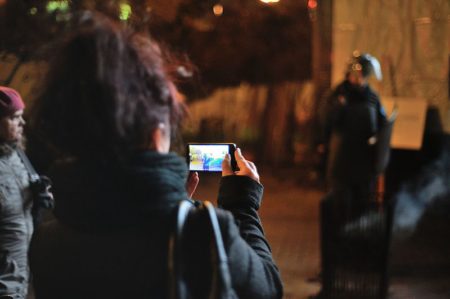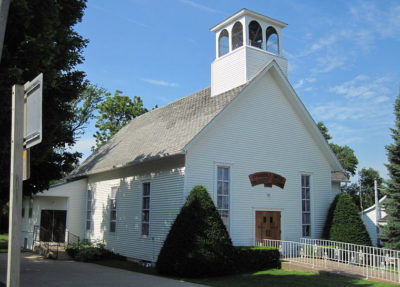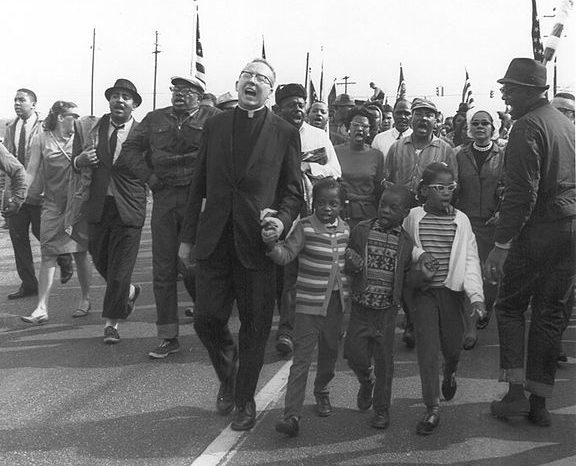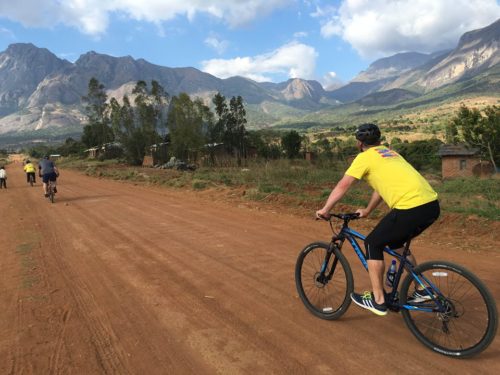One of the fears many people have when they think about evangelism is that they will be asked questions about Christian doctrine and belief for which they don’t have adequate answers. One of those questions is: Why would a good God allow suffering to exist?
I understand the fear (and often the stunned silence) that might follow a question like that. It’s a big question! Yet, the reality is that no one—no Christian, or person of another faith or even no faith—can fully and completely answer a question like that. It is simply too deep; the mystery is too great.
And yet although the question of why may be shrouded in mystery, the question of meaning is not. As Christians, we have a great deal to say about the meaning of suffering, the way God attends to it, enters into it, and ultimately redeems it. About that we have much to say.
So a better question might be: Given the reality of suffering, where is God, and what does God intend to do about it?
At the heart of Christian faith is a commitment to a God who enters into suffering. Frequently, in evangelism, our conversations focus on explaining who Jesus is as divine; and yet, especially in the context of suffering, we need to help people understand who God is by focusing on who Jesus is as human. When we do that, we see that the crucified Jesus is the revelation of God.
The crucified Jesus stands at the center of our understanding of God, and the cross stands at the center of God’s relationship with all of creation. God’s compassionate love for the world takes on the form of suffering. As we walk with those who are suffering, hoping and praying that they might experience the saving love of Jesus Christ, we do well to remember that the atonement offered through the cross of Christ reveals God’s faithfulness to those God created. It lays bare God’s indestructible love, God’s willingness to experience pain, God’s commitment to endure and overcome a world which stands in direct opposition to Him.
In the profound words of Jürgen Moltmann, God “molds and alchemizes the pain of his love into atonement for the sinner.” [1]
The cross of Jesus reveals that the experience of suffering is contained within God’s own nature. It reveals a God who is intimately involved in the world, who is moved and affected by all that we experience, and who willingly becomes vulnerable to suffering.
So while we may not have a definitive answer to the why of suffering, we can and must proclaim without hesitation that God is in the midst of it, ready and able to share it with, and carry it for, those who are walking a dark road.
When we seek to share the gospel amid evil and pain, moving outward from an interior experience of the cross to an understanding of shared suffering is imperative. Our world does not fully correspond to God. It is filled with brokenness, suffering, and death—a reality made severely apparent in the cross. On the other hand, the Resurrection points to the promise of a reality that will correspond to God.
This ‘cross-resurrection’ is a profound contradiction. Yet the cross shows God present even in the midst of that contradiction. In God’s love, God embraces the very creation that does not correspond to God, and thus God suffers. God’s love is not simply active kindness toward humanity; rather, it is love that suffers as it embraces the very evil that stands in opposition to it.
In modeling this love, we join God’s protest against all infliction of suffering, standing in solidarity with, and sharing as much as we are able, the suffering of others.
Several years ago, Kayla Mueller was martyred for her faith at the hands of Islamic State militants. In the public statements issued after her death, her family quoted from various letters she had written:
I find God in the suffering eyes reflected in mine. If this is how you are revealed to me, this is how I will forever seek you.
I will always seek God. Some people find God in church. Some people find God in nature. Some people find God in love; I find God in suffering. I’ve known for some time what my life’s work is, using my hands as tools to relieve suffering.
Kayla discovered the truth that God inhabits suffering. She encountered God there and did not shrink from the danger of joining God there.
Our witness for Christ is strengthened when we open ourselves to the possibility of encountering God in suffering as well. We need not set out to the farthest corners of the earth. Suffering is all around us, often residing quietly but powerfully within people we encounter every day. We need not have an answer to the question of why. Rather, we need only to enter in, willingly making ourselves vulnerable as we offer the compassionate, indestructible love of Christ.
[1] Jürgen Moltmann, The Spirit of Life: A Universal Affirmation [1992], trans. M. Kohl (Minneapolis: Fortress Press, 2001), 136.
Reprinted with permission from www.gospel-life.net.
Photo by James on Unsplash.










 understand that Black Live Matters is not about race, but about justice. Until all lives are given the same value, there is an inequality that exists in this nation and it must be addressed. We have to understand that it is a continuation of the work of Dr. King and a reminder that all men are created equal. Until the scales of justice balance, there is work to do.
understand that Black Live Matters is not about race, but about justice. Until all lives are given the same value, there is an inequality that exists in this nation and it must be addressed. We have to understand that it is a continuation of the work of Dr. King and a reminder that all men are created equal. Until the scales of justice balance, there is work to do.
 gin to work out, especially in race relations: there are so many on both sides who know the truth but for whatever reason choose to stay silent and not speak. I dream for the Beloved community, the community that King began to speak of right before his death. We will not heal as a people until we believe that we are all God’s creation, equal in potential and promise and presence.
gin to work out, especially in race relations: there are so many on both sides who know the truth but for whatever reason choose to stay silent and not speak. I dream for the Beloved community, the community that King began to speak of right before his death. We will not heal as a people until we believe that we are all God’s creation, equal in potential and promise and presence.
 Founded in 1841, EMMS – sender of Dr. Livingstone (yes, that Dr. Livingstone, you may presume) is committed to their mission: “following the example of Jesus Christ, we work with partners in some of the poorest communities of the world to transform lives through compassionate, effective and sustainable healthcare.”
Founded in 1841, EMMS – sender of Dr. Livingstone (yes, that Dr. Livingstone, you may presume) is committed to their mission: “following the example of Jesus Christ, we work with partners in some of the poorest communities of the world to transform lives through compassionate, effective and sustainable healthcare.” This is an exciting opportunity for ministers to experience church and mission in a new culture and then be able to critically evaluate the lessons they have learned for mission in post-Christendom [U.S.].
This is an exciting opportunity for ministers to experience church and mission in a new culture and then be able to critically evaluate the lessons they have learned for mission in post-Christendom [U.S.].


 The will to see God’s Kingdom come is not nearly as important as the will to…what?
The will to see God’s Kingdom come is not nearly as important as the will to…what?

